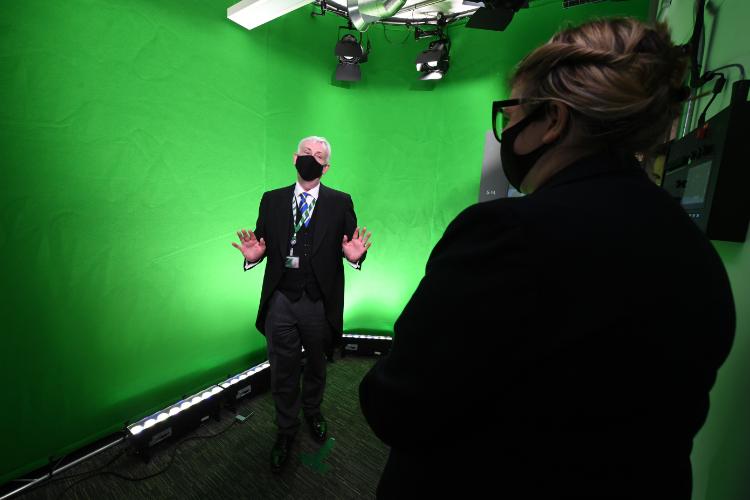Parliament opens purpose-built broadcasting studio with BSL interpreters and 4k-ready tech
The new TV galleries will allow proceedings to be broadcast in high-definition (©UK Parliament/Jessica Taylor)
2 min read
The Houses of Parliament have opened a new purpose-built broadcasting hub as part of plans to make Commons and Lords proceedings more accessible.
Based in its new home at Canon Row, the Parliamentary Broadcasting Unit (PBU) now boasts a purpose-built TV gallery for each house and a green screen studio to allow on-site British Sign Language (BSL) interpretation of selected proceedings.
The new hub also means coverage can be offered in high-definition for the first time, with the option of moving to 4K quality in the future once the technology is more widely adopted.
And, plans are underway to improve the existing ParliamentLive website — where proceedings are currently streamed — as well introduce a new subtitling service for all Commons and Lords businesses.
Opening the new hub last week, Commons speaker Sir Lindsay Hoyle said he was “in awe” of the work of PBU staff throughout the pandemic, as they had overseen “some of the biggest changes to the House’s working in its more than 700-year history”.
“We know there is more work to do, but with BSL interpretation, and the prospect of a new subtitling service for all Commons and Lords chamber business on ParliamentLive later this year, we are continuing to ensure we have a Parliament that is as open and accessible as possible.”

©UK Parliament/Jessica Taylor
Amanda Casson-Webb, Joint CEO of the Royal Association for Deaf People, also hailed the measures, adding that “being able to see and understand our parliamentary democracy in action is a basic need of citizenship”.
“We welcome any moves that make Parliament’s business accessible to all citizens,” she said.
“We look forward to Parliamentary Broadcasting working in collaboration with deaf organisations and the media to make accessible communications part of everyday life.”
Parliamentary proceedings were first televised in 1989, and in 2020 alone over three million people watched video on the ParliamentLive website.
Virtual participation was introduced in both Houses at the start of the pandemic, and between April and December last year over 3,500 remote contributions were made by MPs.
The first ever virtual PMQs was conducted by Boris Johnson in November, while Sara Britcliffe became the first MP to make her maiden speech virtually in April.
